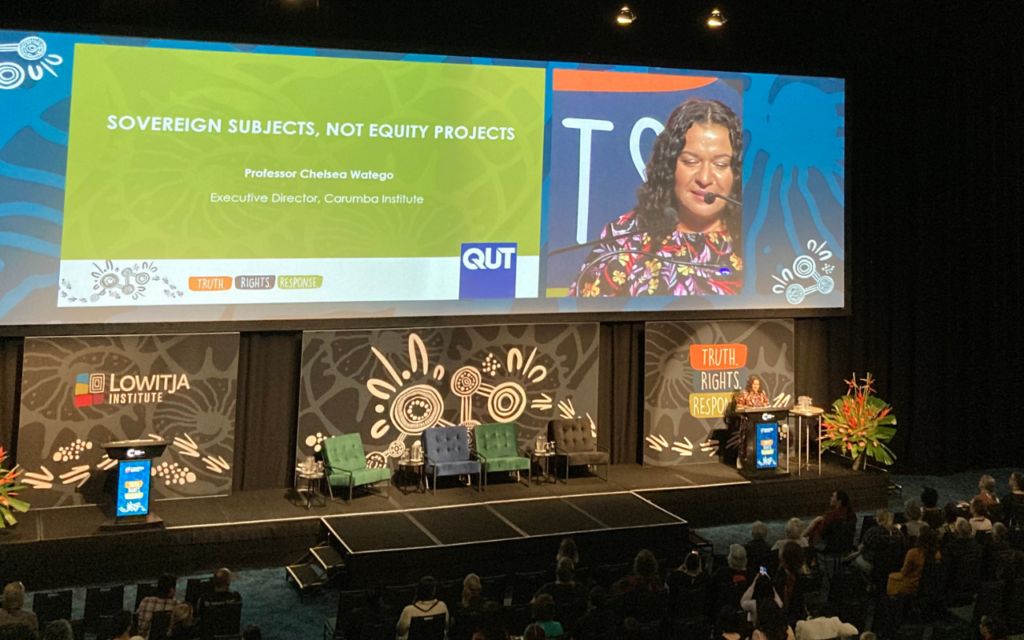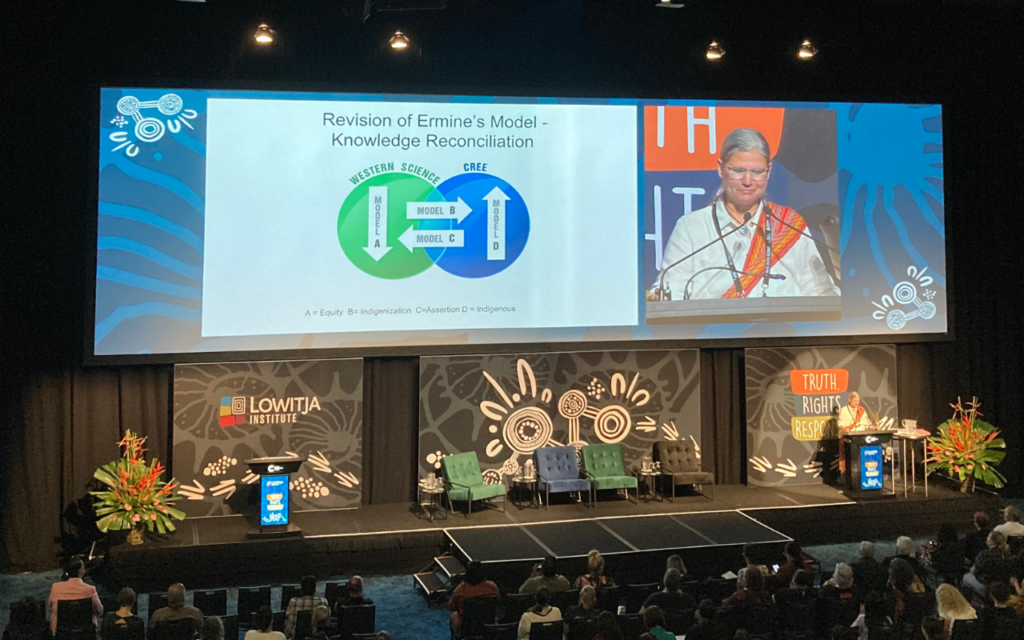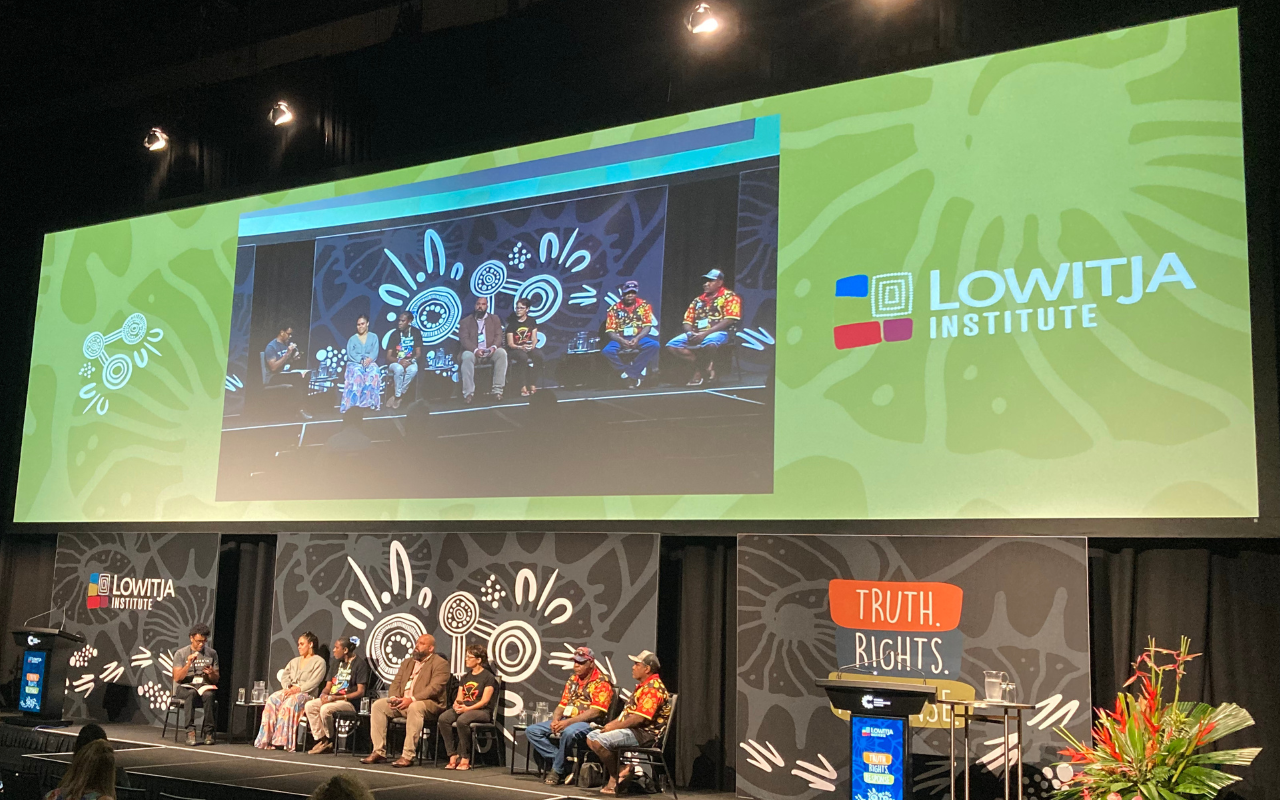As Australia marks NAIDOC Week, the importance of translating Indigenous research into practice has been discussed at a recent conference.
Aboriginal researchers are increasingly “in the driver’s seat” of research into Aboriginal health, which advocates say will lead to be better health outcomes for Indigenous people, as Australia marks NAIDOC Week.
The recent Lowitja Institute International Indigenous Health and Wellbeing Conference was held on the lands of the Gimuy Walubara Yidinji and Yirrganydji peoples, where delegates discussed ways to make genuine progress on Indigenous health outcomes.
A key discussion point at the conference was the importance of Indigenous involvement in all Indigenous-related research.
According to Executive Manager, Research and Knowledge Translation at Lowitja Institute, Wiradjuri woman Associate Professor Michelle Kennedy, this was a cause for celebration.
“That is something so exciting to celebrate that our people are not just being subjects of research anymore,” Professor Kennedy told InSight+.
“We are the ones in the driver’s seat, which will ultimately lead to better research, better policy and practice for our people.”

The three-day conference provided a space for researchers to share their work and how they are translating it into practice.
“We had keynotes of the leaders in Indigenous Affairs, but also Indigenous research methodologies,” Associate Professor Kennedy said.
“As alongside communities, showing how on the ground, they’re advocating for better ethical governance of research and control of research.
“We just had this whole world of research from all different levels from ‘non-academic’ research through to the absolute leaders in our space,” she explained.
They also discussed how Indigenous research should be published.
The Medical Journal of Australia (MJA) Editor-in-Chief Professor Virginia Barbour also attended the conference.
“It was a really inspirational conference, which demonstrated the depth and strength of Indigenous health research across Australia,” Professor Barbour said.
“It was also interesting to hear from First Nations researchers in Aotearoa New Zealand and Canada and the United States, who gave important insights into Indigenous-led research outside of Australia.

“It is vital to ensure that research on Indigenous issues is led by Indigenous researchers and that this is reflected in the authorship of these papers.
“This hasn’t always been the case in the past; we want to support these developments.”
The MJA is keen to publish more research on Indigenous health and is committed to making sure that the journal’s processes and policies support doing this appropriately and respectfully.
There is also a new journal dedicated to Indigenous health and wellbeing research.
First Nations Health and Wellbeing – The Lowitja Journal is the official journal of the Lowitja Institute, Australia’s first Aboriginal and Torres Strait Islander community-controlled health research institute.
The journal will focus on all aspects of science, culture, philosophy and practice surrounding health and wellbeing for First Nations people and communities.
Another key focus of the conference was the importance of community consultation and translating research into practice.
“We had workshops on knowledge translation, and how do we actually put all this together to publish work in a way that’s translatable to Indigenous communities and upholds ethics,” Associate Professor Kennedy said.
For example, an upcoming Inquiry into Diabetes will look specifically for Indigenous voices in their submissions.
According to Chair of the Standing Committee, Member for Macarthur Dr Mike Freelander, they will be seeking submissions from a wide range of Indigenous organisations.
“It is clear that different Indigenous communities will have different ideas and it is very important that we hear from them,” Dr Freelander explained.
“It is therefore vitally important that we look to prevention and the factors that can be changed by listening to Indigenous communities in multiple different areas,” Dr Freelander said.
This week is NAIDOC Week.
Assistant Minister for Indigenous Australians and Indigenous Health, Yanyuwa woman Senator Malarndirri McCarthy told InSight+ it’s a time for celebration but also a time to listen and learn.
“NAIDOC Week is such an important time to celebrate the culture and achievements of Indigenous Australians, and I encourage everyone to support and learn about your local Indigenous communities through the many activities and events held throughout the week,” Senator McCarthy said.
“NAIDOC Week is also an important opportunity to learn about the challenges, achievements and opportunities in advancing Indigenous health outcomes.”
With the Voice to Parliament referendum coming up later this year, many Indigenous leaders say it’s never been more important to listen.
“We still have such a long road ahead of us in closing the gap and it’s important to recognise the power in consulting communities on the issues that affect them – whether they live in cities, towns or the bush,” Senator McCarthy said.
“This is why health will be a key component and priority of the Voice to Parliament, to consult directly with communities and make sustainable change now and into the future.”
Subscribe to the free InSight+ weekly newsletter here. It is available to all readers, not just registered medical practitioners.

 more_vert
more_vert